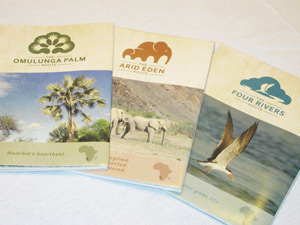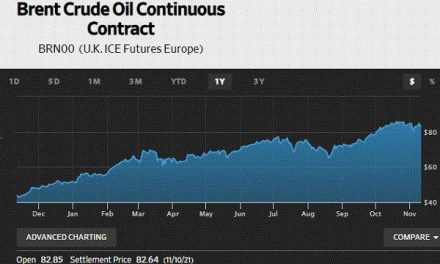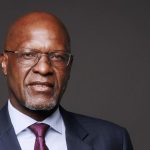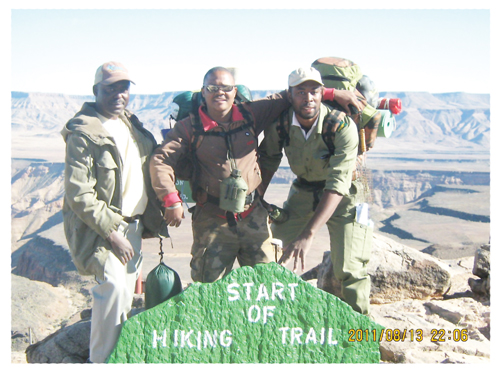
Everybody looks at domestic market to carry tourism but the numbers are finite. There are not enough Namibians

It is a drastic departure from conventional wisdom, suddenly to state that the decimated tourism industry must engineer its own comeback on the back of domestic tourism. It was stated earlier in the year by two chief executives of local tourism companies with considerable clout, and it was stated again earlier this week by none other than the Secretary General of the UN World Tourism Organisation.
This is a fallacy if ever there was one.
In the last stages of the lockdown local lodges started offering unbelievable discounts to local travellers but this was only successful in the areas within a day’s travel from Windhoek and the other big towns. From the discussions I had, I would say the cut-off distance was about 300 km. Anything farther and the people were not interested, and why would they be. The offerings close to Windhoek were so fantastic and so abundant that nobody needed to travel very far to enjoy a weekend at a fancy venue, usually only affordable to foreign tourists.
While this much-punted domestic tourist drive went on, many other lodge owners complained that their fantastic specials did not lead to a single booking, in some cases, not even to an enquiry. These lodges are all situated in the most spectacular scenery but they are simply too far to travel to by road, and flying there is not an option because there are no flights.
What happened next was that many of these lodges did not re-open when the lockdown was relaxed. Instead they opted to remain closed until the end of the year, making a fresh start next year and hoping that international travel will be back to some level of normalcy by then. For the majority, starting up is simply too risky based only on the vague intentions of suddenly mobilising a domestic market, which previously had proven to be negligible.
The cut-throat rates now offered by many accommodation establishments is a desperate measure to generate a minute cashflow in a feeble attempt to outlast Covid-19. These drastic reductions and other measures got me thinking, wondering where all the Namibians will suddenly come from to stock the hundreds of lodges, B&Bs, restcamps, hotels, guesthouses and campsites, weekend after weekend. Matter of the fact is, IT WILL NOT HAPPEN because there are far to few of us, and even fewer who can afford a retreat at a fancy lodge.
For the better part of two and half decades, the tourism industry has shunned its own people. The target market was overseas and the pricing reflected this. How many Namibians are there that can afford a week-long stay at N$3000 per person per night, and those are only entry level rates. Perhaps one percent, in all probability even much less.
Now we see these same lodges offering specials from N$400 to N$800 per person per night. These are rates that we as locals could only dream of. In fact, nowhere in the entire country could you stay for that money, not even in a broom closet in an Etosha restcamp.
The only companies that made heavy discounts (40% to 60%) available to Namibians and SADC residents, are a very few local companies who still had some regard for those Namibians who also wanted a break-away but then at a rate that will not break the bank. Remember, we earn Namibia Dollars so it is useless to expect us to pay US Dollar rates.
What it boils down to is that the local tourism industry needs foreign visitors to make their investments work. Any hope that a surge in local travel will rescue them, is part of the fallacy. It will not because local travel will not explode in the way anticipated, even if the lodges offer their amenities free of charge.
The raw statistical facts speak against this notion. The industry needs about one million foreign travellers with US Dollars in their wallets, to work. That is a very rough, estimated break-even level based on historical visitor figures. Those numbers translate on average to people spending roughly five hundred US Dollars per day for a visit that typically runs from one to three weeks. That is around N$8000 per day. Since this type of spending is not available to locals, it means those lodges that are serious about attracting domestic travellers, have to lower their rates very, very substantially, as we have seen.
But here’s the catch. Even if the lodges can convince every mobile Namibian to go spend one weekend at their place at N$1000 per day, all expenses included, there are not enough Namibians to carry on doing this and the difference between N$8000 and N$1000 is so wide that the two markets are incomparable. The one cannot carry the other despite whatever false hopes many companies have.
Similarly, bargaining on a sudden surge in SADC travel is also a fallacy. The tourism companies in our neighbouring countries face exactly the same fate and they are all hamstrung by the same problems. They also offer unbelievable specials so what incentive is there for any person to travel to Namibia when the same value for money is now available in every SADC country.
I believe the only tourism companies that will reap some benefit from the local market are those that did not forget about Namibians in the past. The rest who had eyes and ears for foreigners only, will have to wait until the foreigners start arriving again, that is to say if their doors are still open by then.










































